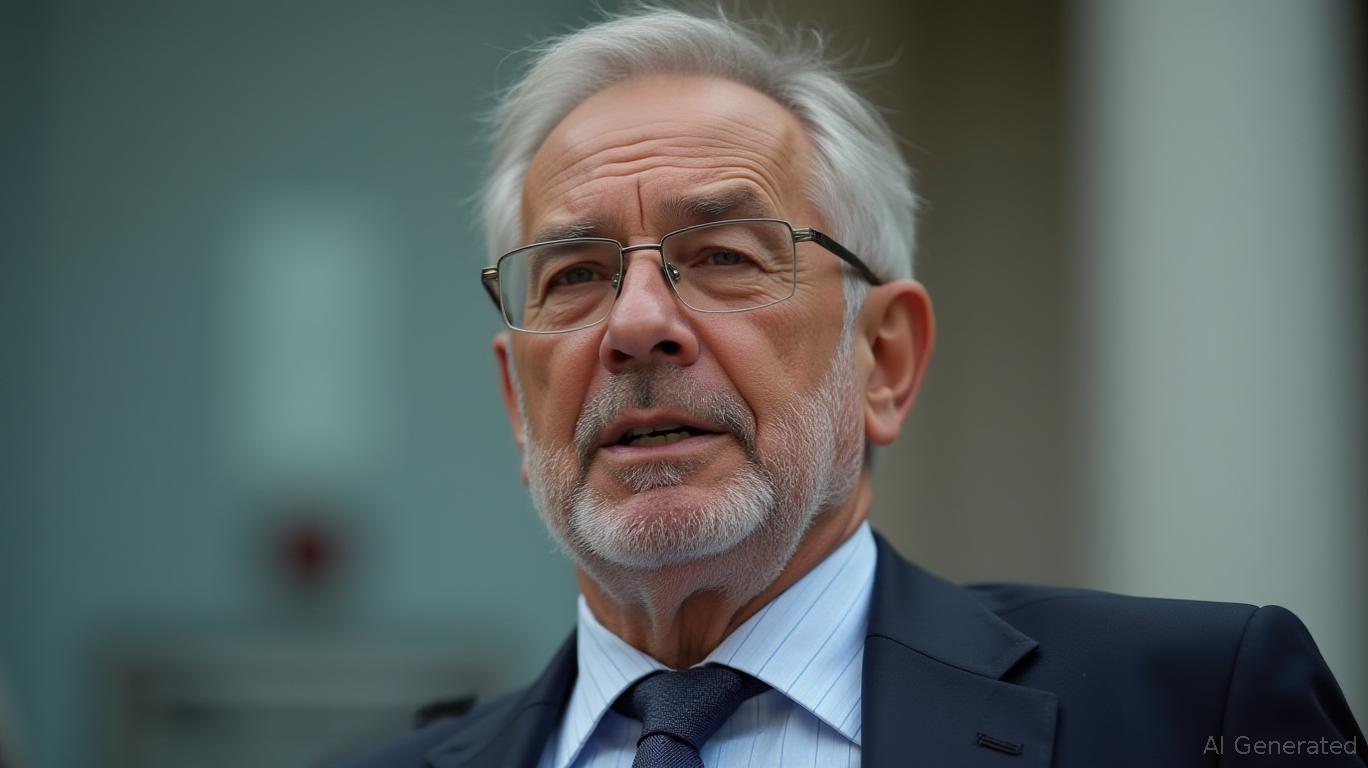U.S. Support or Political Move? Argentina's Risky Peso Strategies
- Argentina's Milei secures election win, strengthening austerity reforms aligned with U.S. priorities. - U.S. Treasury deploys $20B currency swap to stabilize peso, sparking election-timing debates. - Peso gains 0.1% amid market volatility, but 100%+ inflation and fiscal fragility persist. - U.S. seeks Argentina as Latin American counterweight to China, negotiating minerals/infrastructure deals. - Domestic tensions rise as opposition accuses U.S. of interference, while default risks remain unaddressed.
Argentina’s President Javier Milei is on the verge of a major political resurgence after his libertarian party, La Libertad Avanza, took a commanding lead in Sunday’s midterm elections, based on preliminary tallies. With 92% of ballots counted, the party captured 41% of the vote and secured 64 out of 127 seats in the lower house, while the Peronist opposition trailed with 24.5%, according to
U.S. Treasury involvement in Argentina’s economic stabilization ramped up prior to the election. Last week, a $20 billion currency swap deal was completed with Argentina’s central bank, alongside direct Treasury purchases of pesos to help steady the currency, according to a

Financial markets initially experienced turbulence, as the peso ended a five-day losing streak with a slight 0.1% uptick. However, experts warn that fundamental issues—such as inflation exceeding 100% and a precarious fiscal situation—remain unresolved. JPMorgan and Citigroup intervened in Argentina’s currency market to support the peso, as first reported by the
Milei’s win also carries strategic weight for U.S. interests in Latin America. The Trump administration has promoted Argentina as a counterbalance to China’s expanding economic influence, which includes a smaller swap arrangement with Beijing. Separately, the U.S. International Development Finance Corporation (DFC) is in talks with Argentina on critical minerals and infrastructure projects, aiming to reduce the country’s debt while strengthening U.S.-Argentina economic ties, as reported by
Despite the apparent electoral gains, Milei’s reform agenda still faces obstacles. Achieving at least 35% of the vote was seen as essential for a veto-proof majority in Congress, but even with increased support, rapid legislative changes may be elusive. According to JPMorgan analysts, while U.S. backing could lower Argentina’s political risk premium, the country’s default risk remains high unless credible steps are taken to replenish foreign reserves, as noted by
The election results have also reignited political friction at home. Opposition leaders accused the U.S. of interfering in Argentina’s domestic affairs, with former Defense Minister Jorge Taiana accusing Trump of “blackmailing the Argentine people” on social media. Meanwhile, American lawmakers have called for greater transparency regarding the swap deal’s terms, including collateral and potential risks to taxpayers.
As Argentina’s markets await post-election direction, uncertainty persists. Although Milei’s party appears set to expand its influence in Congress, the durability of U.S.-supported economic strategies—and the peso’s stability—will hinge on the administration’s ability to enact structural reforms without worsening fiscal vulnerabilities. For now, the peso’s modest recovery and a rally in dollar-denominated bonds indicate cautious optimism among investors, though concerns remain about the possibility of a “Black Swan” event if political or economic instability returns.
Disclaimer: The content of this article solely reflects the author's opinion and does not represent the platform in any capacity. This article is not intended to serve as a reference for making investment decisions.
You may also like
Ethereum Updates: BullZilla Combines Meme Trends with a Robust Economic Framework
- BullZilla ($BZIL) leads presale with 2,738% ROI potential, raising $960K in Stage 7-D via deflationary "Roar Burn" mechanics and 70% APY HODL incentives. - Project combines meme culture with structured economics, allocating 50% tokens to presale and 20% each to staking and liquidity, differentiating in crowded crypto market. - Bitcoin and Ethereum gains reflect broader optimism, while regulatory risks and meme-driven volatility warnings persist despite institutional blockchain investments.
Stablecoin Transfers Receive $9 Million Investment to Address Banking Shortfalls in Latin America
- Standard Economics raised $9M in seed funding led by Paradigm to expand its stablecoin-based remittance platform Uno in Latin America and Asia. - The platform enables low-cost USD transfers via stablecoins, targeting regions with high crypto adoption like Argentina and Brazil where stablecoins dominate 90% of transactions. - Latin America's crypto market grew 63% YoY in 2025, driven by economic instability and regulatory advancements, with cross-border remittances reaching 20% of GDP in El Salvador and G

XRP News Today: Ripple Partners with Universities to Advance the Blockchain 'Internet of Value'
- Ripple launches blockchain research council to advance DeFi and quantum computing through academic partnerships. - University of San Francisco collaboration focuses on blockchain policy analysis and hands-on infrastructure training. - $1.5M RLUSD grants fund global universities while acquisitions expand XRP's institutional utility in cross-border payments. - Market analysts highlight XRP's $2.30-$2.50 resilience as academic initiatives drive adoption toward a "global Internet of Value."

Bitcoin Updates: Crypto Market Faces Collapse as $217M in Leveraged Positions Are Liquidated
- A top Bitcoin whale with a "100% win rate" suffered its first loss, liquidating a $250M BTC long position at $12.68M after 24 hours. - The liquidation occurred amid a $217M global crypto crash, with Bitcoin falling below $113K and Ethereum under $4K due to leveraged trading cascades. - Geopolitical shifts (U.S.-China tensions easing) and a 97.8% chance of Fed rate cuts created conflicting market pressures, while other whales added leveraged ETH positions. - Analysts warn of leveraged position fragility,
